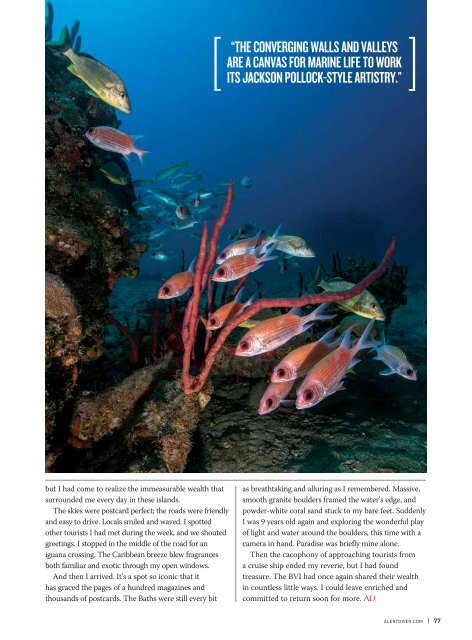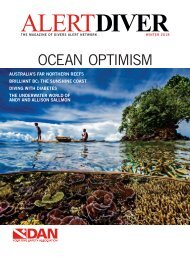AD 2016 Q2
As we pointed out in the spring 2013 edition of the Alert Diver, even being a dive buddy has potential legal implications. So, to bump this up a notch, what about the diver training organisations themselves? Where do they stand? How do they relate to South African law? Are they all considered the same under our legal system in spite of the differences in organisational structures and training programmes? How does this affect their respective instructors and trainee divers from a legal perspective? These are not exactly simple questions. It is certainly true that the respective training organisations differ in a number of ways. However, this does not imply that there are necessarily differential legal implications for each of them. In fact, under South African law, the legal principles are common in all matters. Therefore, if you suffer a loss and you (or your estate in the case of a fatality) wish to recover damages, the legal principles would be applied commonly; whether you are driving or diving. Although not a frequent occurrence, there have been quite a number of law suits associated with diving injuries and damages in South Africa. This is not surprising, as the occurrence of law suits is really a function of “numbers”. As training increases, so do the chances of injuries and, with it, the chances of legal recourse. So, it remains wise to insure yourself, your equipment or your business in a proper and effective way. But before getting back to the potential differences amongst the training agencies, let’s first explore the foundational legal principles on which any civil claim would be adjudicated: inherent risk, negligence and duty to take care.
As we pointed out in the spring 2013 edition of the Alert Diver, even being a dive buddy has potential legal implications. So, to bump this up a notch, what about the diver training organisations themselves? Where do they stand? How do they relate to South African law? Are they all considered the same under our legal system in spite of the differences in organisational structures and training programmes? How does this affect their respective instructors and trainee divers from a legal perspective? These are not exactly simple questions.
It is certainly true that the respective training organisations differ in a number of ways. However, this does not imply that there are necessarily differential legal implications for each of them. In fact, under South African law, the legal principles are common in all matters. Therefore, if you suffer a loss and you (or your estate in the case of a fatality) wish to recover damages, the legal principles would be applied commonly; whether you are driving or diving.
Although not a frequent occurrence, there have been quite a number of law suits associated with diving injuries and damages in South Africa. This is not surprising, as the occurrence of law suits is really a function of “numbers”. As training increases, so do the chances of injuries and, with it, the chances of legal recourse.
So, it remains wise to insure yourself, your equipment or your business in a proper and effective way. But before getting back to the potential differences amongst the training agencies, let’s first explore the foundational legal principles on which any civil claim would be adjudicated: inherent risk, negligence and duty to take care.
Create successful ePaper yourself
Turn your PDF publications into a flip-book with our unique Google optimized e-Paper software.
[<br />
[<br />
“THE CONVERGING WALLS AND VALLEYS<br />
ARE A CANVAS FOR MARINE LIFE TO WORK<br />
ITS JACKSON POLLOCK-STYLE ARTISTRY.”<br />
but I had come to realize the immeasurable wealth that<br />
surrounded me every day in these islands.<br />
The skies were postcard perfect; the roads were friendly<br />
and easy to drive. Locals smiled and waved. I spotted<br />
other tourists I had met during the week, and we shouted<br />
greetings. I stopped in the middle of the road for an<br />
iguana crossing. The Caribbean breeze blew fragrances<br />
both familiar and exotic through my open windows.<br />
And then I arrived. It’s a spot so iconic that it<br />
has graced the pages of a hundred magazines and<br />
thousands of postcards. The Baths were still every bit<br />
as breathtaking and alluring as I remembered. Massive,<br />
smooth granite boulders framed the water’s edge, and<br />
powder-white coral sand stuck to my bare feet. Suddenly<br />
I was 9 years old again and exploring the wonderful play<br />
of light and water around the boulders, this time with a<br />
camera in hand. Paradise was briefly mine alone.<br />
Then the cacophony of approaching tourists from<br />
a cruise ship ended my reverie, but I had found<br />
treasure. The BVI had once again shared their wealth<br />
in countless little ways. I could leave enriched and<br />
committed to return soon for more. <strong>AD</strong><br />
ALERTDIVER.COM | 77









